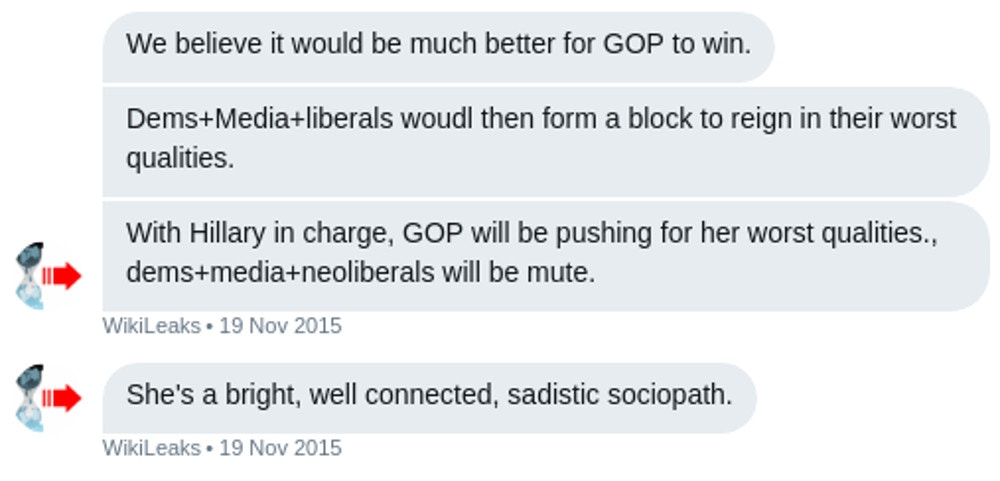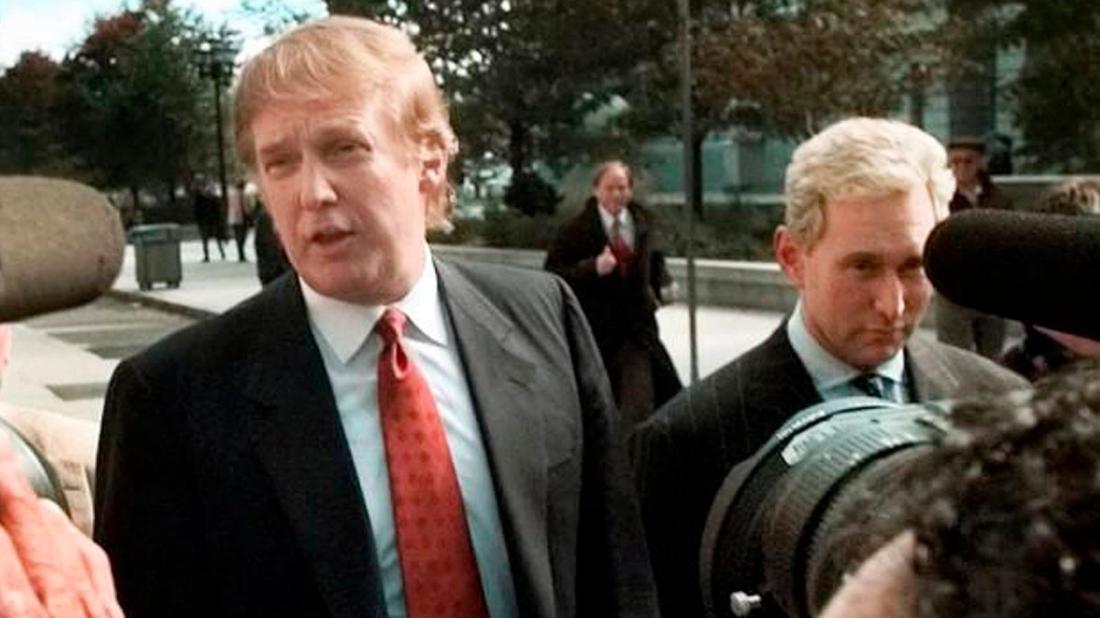FBI documents confirm Roger Stone and Julian Assange communicated during and after 2016 election

A few minutes every morning is all you need.
Stay up to date on the world's Headlines and Human Stories. It's fun, it's factual, it's fluff-free.
Recently released FBI documents confirm Roger Stone, a former member of United States President Donald Trump’s 2016 campaign, has repeatedly communicated with Julian Assange, founder of WikiLeaks.
Their communication was unearthed during an investigation that led to Stone being sentenced to three years in prison.
Stone is regarded as a political operative who has been willing to use underhanded tactics to advance his causes. During the 2016 election, WikiLeaks was behind the release of thousands of emails that damaged the campaign of former Secretary of State Hillary Clinton.
Stone was one of six Americans with ties to Trump who were formally charged with crimes after Robert Mueller’s investigation into Russian interference in the election.
Roger Stone’s communications with Julian Assange
On April 29, the Associated Press reported that a media-brought court case had led to the release of documents related to an FBI investigation of Stone. The investigation found that Stone had communicated multiple times with Assange, who was in the midst of a seven-year residence in the Ecuadorian Embassy in London, England.
Even while under diplomatic asylum, Assange guided the release of tens of thousands of emails related to Clinton and the Democratic National Committee (DNC). The released emails between Clinton, her aides, and officials within the DNC are alleged to have damaged Clinton’s campaign. In 2015, Assange expressed his preference that Clinton lose the election in leaked Twitter messages.


Of note in the recently released messages was a June 2017 communication via Twitter in which Stone assured Assange that he should not worry about his role in leaking the illegally obtained emails. Stone said, “as a journalist it doesn’t matter where you get information only that it is accurate and authentic.”
“If the US government moves on you I will bring down the entire house of cards,” Stone further promised, suggesting that he had high-level government contacts who could protect Assange.
Stone also alluded to rape charges against Assange that a Swedish prosecutor dropped in May 2017. Assange had originally sought asylum at the embassy in 2012 to avoid prosecution on those charges, which he maintained were false.
In 2019, Assange was forced to leave the embassy at which time he was arrested by British police. He currently is attempting to fight extradition to the US on charges of hacking and espionage.
Stone’s support of Trump

Stone was an advisor in the early months of Trump’s campaign, though he was fired in August 2015. Even after he officially left the campaign, Stone continued to advise Trump and remained a vocal supporter.
He formed “Stop the Steal,” an organization dedicated to ensuring that the Republican Party did not attempt to block Trump from earning the party’s nomination for president.
Throughout the campaign, Stone frequently used his Twitter account to support Trump and attack critics in the media and the political establishment. His racist and misogynistic attacks on various news personalities led to him being banned from CNN and MSNBC in 2016. Even after Trump won, Stone’s persistent online vitriol resulted in him being banned from Twitter in October 2017.
The FBI release of documents confirmed a February 2018 report by The Atlantic that alleged that Stone had been communicating directly with WikiLeaks. In tweets and interviews during the election, Stone frequently implied he was aware of WikiLeaks’ intended email leak schedule. He gloated that the emails would hurt Clinton and her allies.
Stone is also alleged to have been in communication with Guccifer 2.0, the Russia-backed hackers who initially stole the emails and then passed them on to WikiLeaks.
Trump’s support of Stone
Multiple people who were directly or indirectly involved in the Trump campaign were charged with crimes by Robert Mueller, the Special Counsel who investigated Russian interference in the 2016 election. Among them, Stone was charged with lying under oath and obstructing a Congressional investigation.
When Stone was found guilty, the prosecutors in the case recommended a punishment of nine years in prison. Following the recommendation, Trump tweeted that the potential sentence was “horrible and very unfair.”
After Trump’s public criticism, the Department of Justice stepped in to reduce the recommended length of Stone’s sentence. As a result, all four of the prosecutors in the case withdrew from the case in protest. Ultimately, the judge in the case sentenced Stone to just over three years in prison.
At the time, Trump said he would not pardon Stone, but he did believe Stone would be exonerated in the future. Stone is currently waiting for the judge to announce the date on which he must report to prison.
Roger Stone, provocateur

While he remains out of prison, Stone has continued to be a vocal proponent of rightwing talking points and conspiracies.
In relation to COVID-19, Stone has helped spread the false conspiracy that Bill Gates helped create the virus as a way of pushing mandatory vaccinations. This conspiracy theory alleges that the vaccinations are a cover for injecting people with microchips that can be used to track them.It isn’t clear how much of what Stone says he actually believes.
The press has frequently referred to Stone as a “Dirty Trickster,” as Stone has openly discussed his willingness to deceive, cheat and manipulate to achieve his political aims.
[article_ad]




Comments ()